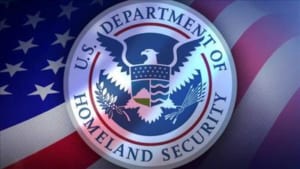The United States Citizen and Immigration Services (USCIS) recently updated their website so that the training experience of F-1 visa international students who receive science, technology, engineering and mathematics (STEM) degrees can no longer complete their optional practical training (OPT) in the workplace of their employer’s clients or customers. The USCIS reasoned that the prohibition because the U.S. Immigration and Customs Enforcement (ICE) has no authority to visit the client or customer’s workplace.
Under the STEM OPT rule, ICE is authorized to perform site visits to employer locations that train STEM OPT students. The visitations are done to ensure that the STEM OPT program requirements are complied with. To qualify as an employer, the employer must attest to the following terms and conditions:
 The employer will have a bona fide/real employer-employee relationship with the student.
The employer will have a bona fide/real employer-employee relationship with the student.- The employer has sufficient resources and personnel available to provide appropriate training in connection with the specified opportunity at specified location(s).
- ICE may, at its discretion, conduct a site visit of the employer to ensure that program requirements are being met, including that the employer possesses and maintains the ability, personnel, and resources to provide structured and guided work-based learning experiences consistent with this Plan.
- The STEM OPT student will not replace a full- or part-time, temporary or permanent U.S. worker.
The training opportunity will assist the student in attaining his or her training goals.
The requirement that students must be bona-fide employees of the employer is explained in a Rule by the Homeland Security Department issued on March 11, 2016 (“Final Rule”):
“Accordingly, DHS clarifies that students cannot qualify for STEM OPT extensions unless they will be bona fide employees of the employer signing the Training Plan, and the employer that signs the Training Plan must be the same entity that employs the student and provides the practical training experience.”
Considering that there is no restriction as to the location of the training program, the new limitation on the workplace of STEM-OPT students found on the USCIS website seems to expand the requirements for the training of STEM OPT students. As mentioned above, the Final Rule on STEM OPT only requires that a STEM OPT student be hired as a bona-fide employee of the employer signing the training plan, and that the employer that signs the training plan will be the one that provides the practical training experience.
Despite the contradiction in the rules, STEM OPT students should be mindful that completing their international studies and their OPT by working in the place of business of their employer’s clients could result in a finding that the employer was not properly supervising the student’s training. The finding that the employer was not properly supervising the student’s training could lead to a determination of a status violation which, in turn could lead to the STEM OPT student’s retroactive accrual of unlawful presence, if the new rule on unlawful presence explained in the USCIS memo posted on May 11, 2018 becomes effective on its terms on August 9, 2018.








